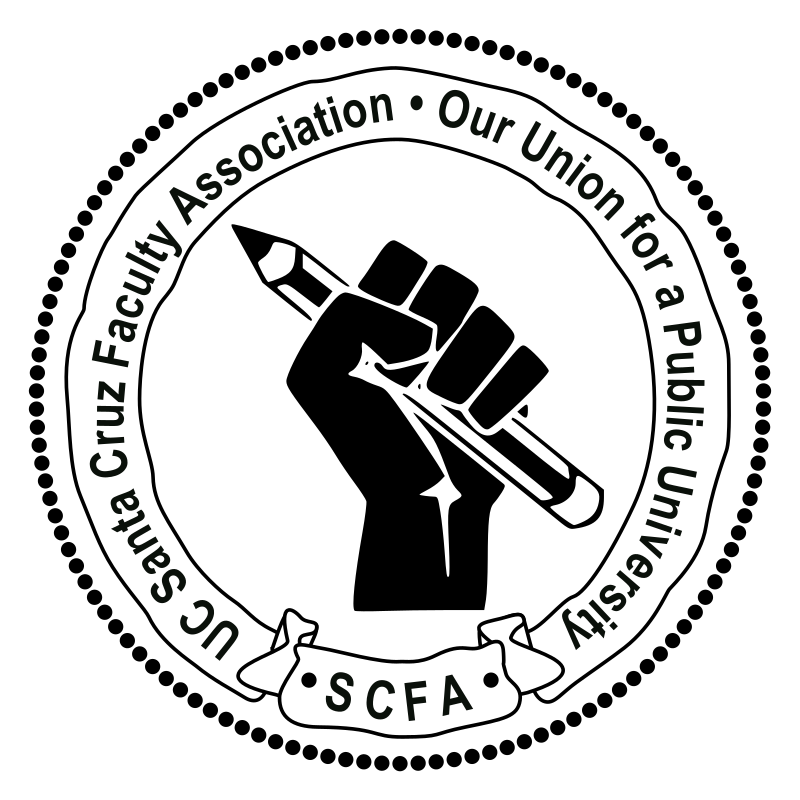In winter 2014, deeply concerned about the effects of UC-systemwide and campus budget cuts since 2008, the Santa Cruz Faculty Association sponsored a program of Small Grants for Creative Response to the Crisis in Education. One of the awards was granted to conduct a Budget Cut Impact Survey to assess and evaluate the particular impacts of those cuts on faculty teaching and morale at UCSC. This report contains the results of that survey. These results seem particularly timely given current discussions about budget cuts we may be facing again in the near future, and the impacts those would likely have.
The survey addresses UCSC faculty experiences of the budget cuts that began in Fall 2008. This is the first study of the budget cuts’ impact on faculty, i.e. on our teaching, service, research, and morale. The study offers information about those impacts generally, as well as addresses how these impacts affected faculty differently across divisions.
This study is especially timely, given warning that further budget reductions will be imposed for the coming academic year. At this point, there is little left to cut but bone, and the negative consequences for undergraduate education at UCSC and for staff and faculty work lives will be marked. Here are a few responses to some of our questions from your colleagues:
I am extremely concerned about how this budget-cutting climate promotes the bottom line over learning. The institution seems more concerned with getting students through than with providing them with a top-notch education. UCSC is adopting market-oriented values at the expense of our students. (Social Sciences).
More than taking time away from other job duties, increased efforts in teaching and grant applications have taken time away from eating, sleeping and seeing my kids. The workload just keeps increasing, and why not? Faculty can not be paid overtime, and MUST perform to survive the job. Great deal for the university. (Engineering)
Students, who are less prepared than in the past in any case, are now working sometimes two or more jobs to pay their tuition. This means worse classroom results, more time spent correcting papers, doing remedial work in class, etc. The general level of instruction suffers. (Humanities)
Loss of core facilities, which directly support our research goals, has been SEVERELY hampered by budget cuts. I now have to contract many services outside that used to be present on campus, and these off-campus services are more expensive. (PBSci)
[In my department] cuts have slashed the core curriculum far beyond what it could absorb, so the remedial classes that allow students to prepare for the major have been watered down… (Arts)
You can read the full report, and data on impacts, by clicking HERE. We encourage you to do so.
